Guinea pigs are very adventurous eaters, from fruits to vegetables, and everything in between. Did you know that guinea pigs enjoy eating grass? This may be dried grass (hay) or fresh grass for a sweet taste.
Guinea pigs are able to eat and even enjoy many kinds of grass. Below is a list of the various types of grass and their benefits for your guinea pig.
Be sure to give your guinea pig these foods in moderation to prevent overeating and potential illness. Guinea pigs should taste these foods in small amounts at a time so they get used to them. This is also a way for the owner to gauge if there is any negative reaction from consuming the grass.
Table of Contents
Common Grasses Fed to Guinea Pigs
| Grass Type | Origin | Health Benefits |
| Timothy Grass | Europe | Helps maintain dental and digestive health |
| Orchard Grass | Eurasia | High in protein, contains high fiber and calorie count |
| Buffalo Grass | Great Plains | Contains Vitamin B12, high amounts of protein, and iron |
| Oat Grass | Europe, Western Asia, Northern Africa | Contains Vitamin C, K, B. High in protein and fiber |
| Dandelion Grass | Eurasia | May lower blood pressure and provide many antioxidants |
| Blue Grass | Scotland, Ireland, England | May lower blood pressure, and may even improve brain functions |
| Centipede Grass | China | Contains protein, calcium, and many antioxidants |
Timothy Grass

Timothy grass first originated in Europe. Today, timothy grass may be found around the world, commonly in cool-humid places such as Asia and North America. Among one of the most popular grasses for small animals, timothy grass is used for hay but may also be found for use in pastures.
Guinea pigs may enjoy timothy grass as it has a nutty, sweet taste. Usually dried into hay, this grass is accompanied by several health benefits. Some of these benefits include aiding in both digestive and dental health for your furry friend. In addition, timothy grass contains protein and calcium.
Orchard Grass
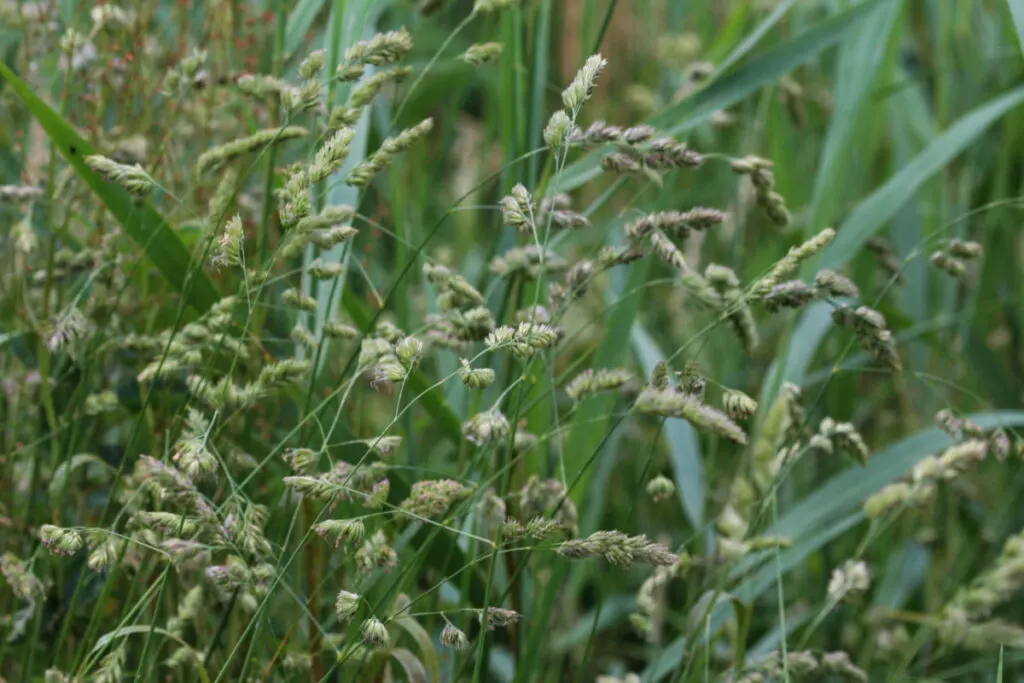
Orchard grass first originated in Eurasia. This grass was originally used for pasture hay and as forage grass. This grass was soon introduced to North America in the late 1700s and today is used for similar purposes.
Guinea pigs enjoy orchard grass for its sweet taste and fresh, juicy textures. In addition to its sweet taste, guinea pigs may receive many health benefits when eating orchard grass. Some of these health benefits come from its high fiber and high protein levels.
It is important to acknowledge that this grass has a higher calorie count than other grasses. This should be given to your guinea pig in small amounts to avoid overeating and digestive issues.
Buffalo Grass
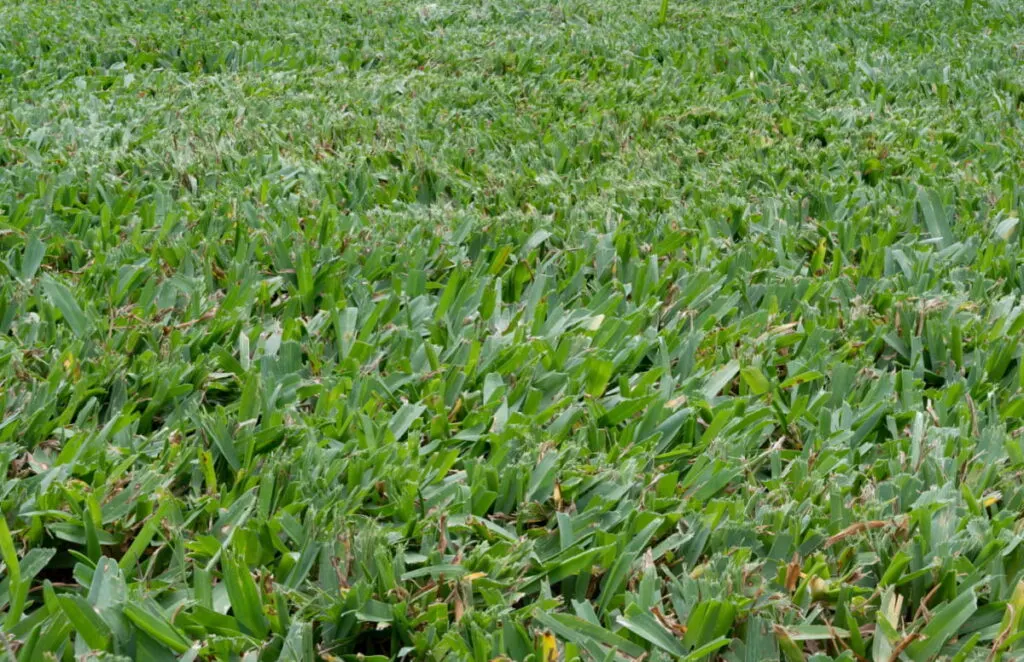
Buffalo grass first originated in the Great Plains. Buffalo grass is named for its contributions to the bison, also known as the buffalo, and its work in aiding in a buffalo’s health. This being said, buffalo grass is accompanied by many health benefits and today is used for lawns as it has a higher tolerance to the cold.
Guinea pigs enjoy buffalo grass for its floral and sweet flavor. Buffalo grass may contribute to your guinea pigs’ health by providing protein, iron, and Vitamin B12.
Oat grass
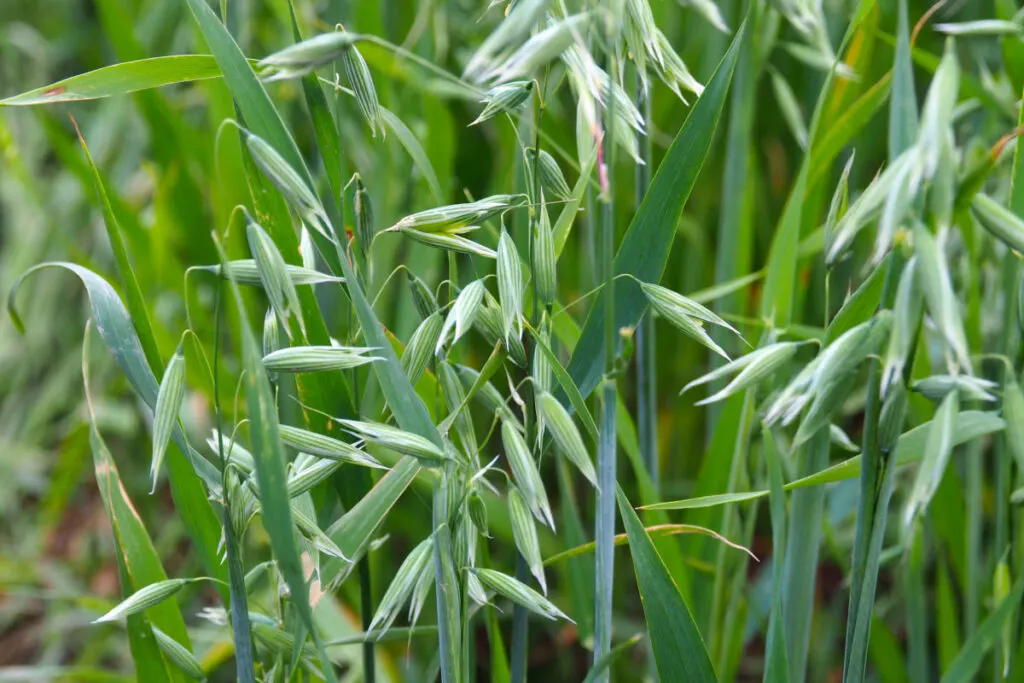
Oat grass originates from Europe, Northern Africa, and Western Asia. This grass was originally used for teas, certain medical practices, and even as a cooking ingredient. Found commonly in mountains with lush soil and lots of sunlight, oat grass provides many health benefits.
Guinea pigs may enjoy oat grass, it has a mildly sweet taste, fresh flavor and may be added to any diet for added health benefits and enriched flavor. Oat grass can provide your guinea pig with Vitamin K, C, B, folic acid, calcium, and beta carotene!
Dandelion Grass
Dandelion grass first originated in Eurasia. Commonly found among sunny areas with lush soil and a consistent water source, this grass may just be your guinea pig’s new favorite treat!
Guinea pigs will enjoy dandelion grass for its sharp, bold flavor, said to be similar to that of arugula, and mustard greens.
This grass is nutrient-filled and may provide your furry friend with an abundance of benefits. Some of these include the potential to lower blood pressure, reduce inflammation, aid in weight loss, and may even boost the immune system.
Bluegrass
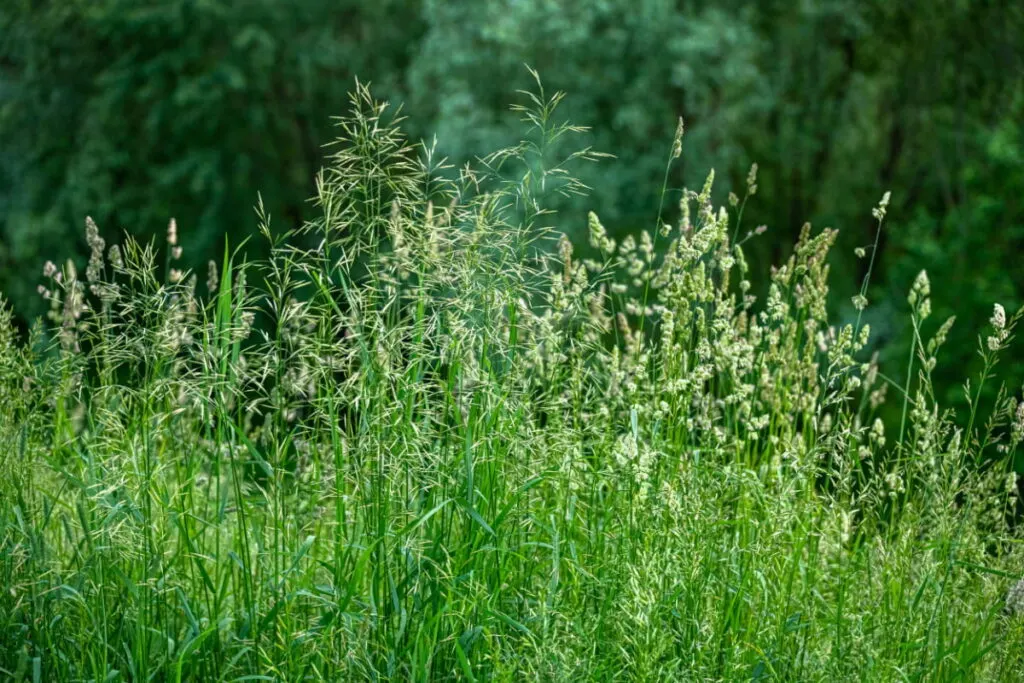
Bluegrass first originated in Scotland, Ireland, and England, but now grows around the world. Named for its slight blue color in the sun, this grass was originally used for health benefits and even some medicines. Today, this grass is used for its taste and health benefits to foraging animals.
Guinea pigs may enjoy bluegrass for its bold flavors and tangy taste. In addition to the grass’s fresh and fun taste, this grass may aid in your guinea pigs’ health. Some of these health benefits include the potential to lower blood pressure, and the potential to boost brain health.
Centipede Grass
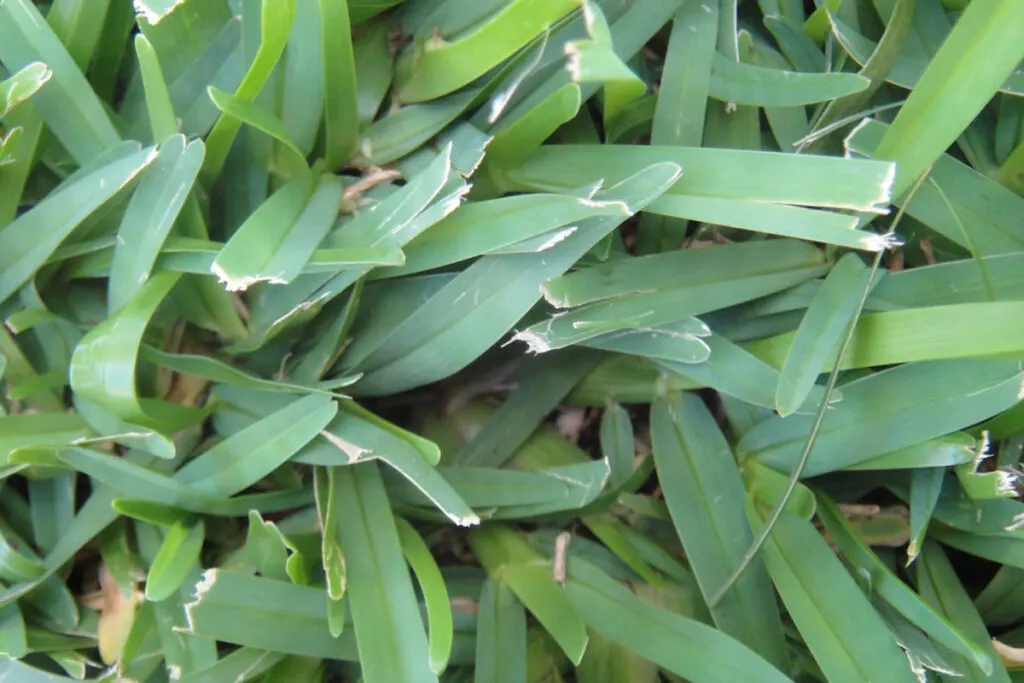
Centipede grass originated from China. Originally used for lawns, this grass was named for its upright creeping stems that resemble a centipede. Today, centipede grass is used for lawns, gardens, and frequently grows in sunny areas with rich soil.
Guinea pigs may enjoy centipede grass as it has a fresh, sour flavor. In addition, this grass has its fair share of health benefits, some of these include calcium, protein, and many antioxidants.
3 Common Types of Lawn Grasses for Your Guinea Pig
Whether you want it to or not, grass grows. Many neighborhoods are filled with various grasses, some of which your guinea may be able to eat.
Below is a list of the three most common types of grass that could be growing on your lawn. These grasses are safe for your guinea pig to eat and may provide health benefits as well.
| Grass-type | Origin | Health benefits |
| Bermuda Grass | Africa | May heal skin ailments, works as an anti-inflammatory, and may reduce the itchiness of the skin. |
| Fescue Grass | Europe | Provides protein and may aid in digestive health. |
| Meadow Grass | Unknown | Contains antioxidants, proteins, and fibers. |
Bermuda Grass
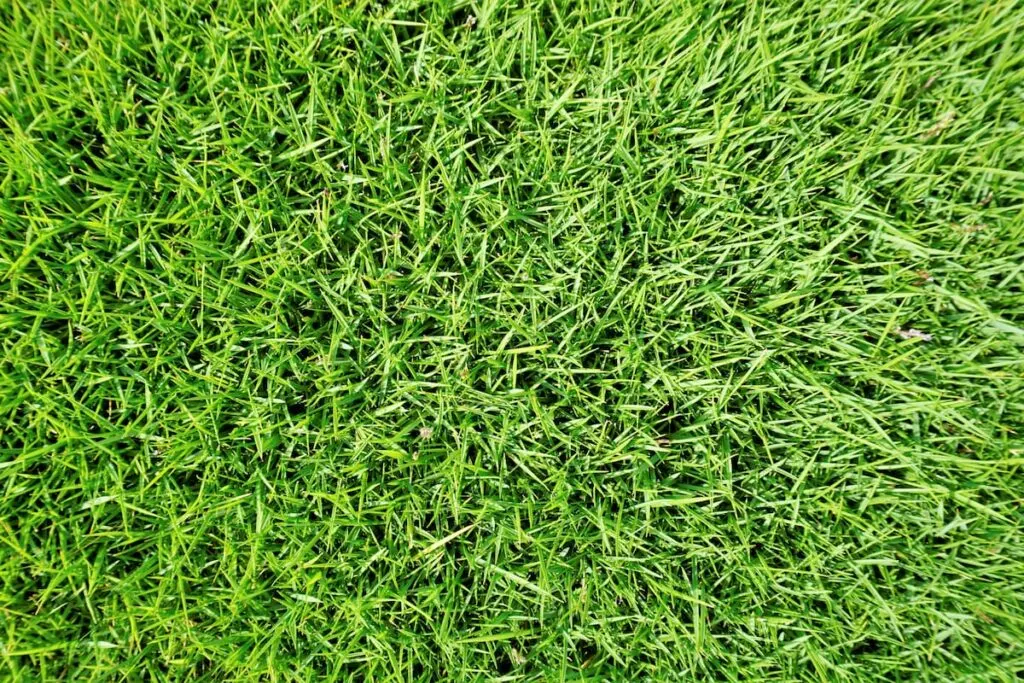
Bermuda grass, first originating in Africa, is today found around the world in tropical and sunny areas. Bermuda grass is a popular choice among small animals in terms of taste and health benefits. Known to have a bold and herb-filled flavor, this grass may be a perfect addition to your guinea pig’s diet.
Furthermore, bermuda grass has many health benefits, including, the potential to aid in healing skin ailments, reduce red and itchy skin, and may even aid in oral health.
Fescue grass
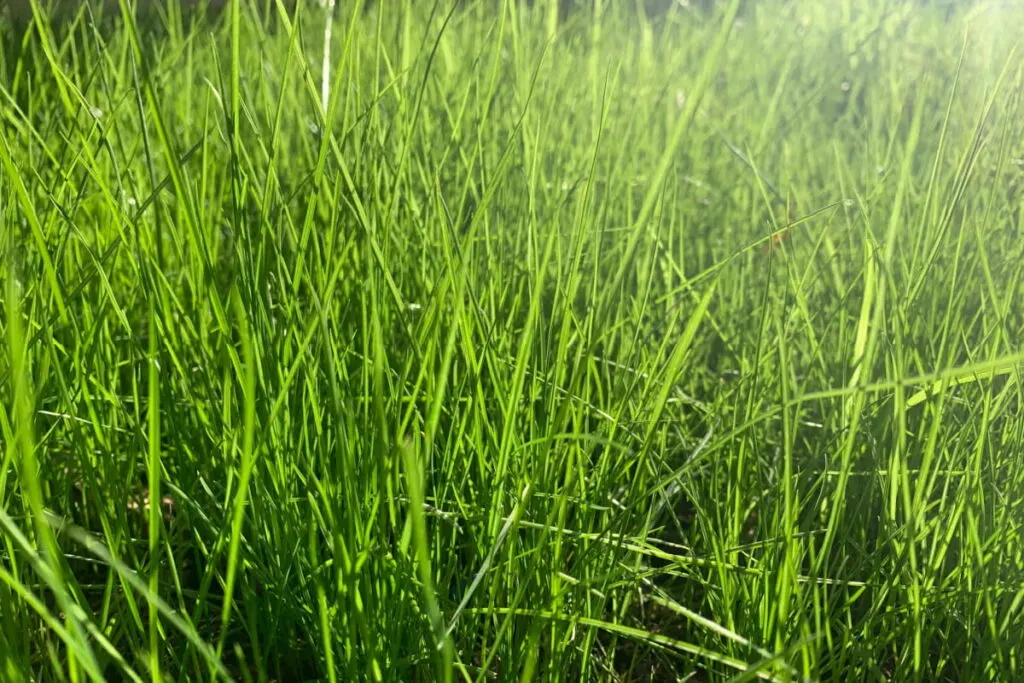
Fescue grass originated in Europe, originally used as a forage-type grass, is now commonly used as a popular choice in lawn grass. Fescue grass is named for its Latin word “Festuca” meaning “stalk”. Fescue grass is accompanied by many health benefits for both humans and animals.
Guinea pigs may enjoy fescue grass as it has a mildly sweet and bitter fresh taste. Fescue grass has high levels of protein, and may even help with your guinea pig’s digestive health.
Meadow grass
Meadow grass’s origin is unknown but it is found around the world today. Named for its flowy, soft texture, meadow grass may be a perfect addition to your guinea pigs’ diet. Originally used for medicines and crafts, is today used for lawns and is a popular grass that positively contributes to ecosystems.
Guinea pigs may enjoy meadow grass for its fresh and vibrant flavor and soft texture. Meadow grass comes with its own set of health benefits. Some of these benefits include the containment of protein, fiber, and a handful of antioxidants.
3 Common Types of Wild Grass for Your Guinea Pig (U.S.)
Grass grows everywhere, commonly in wide and natural settings with lots of space, soil, water, and sunshine!
Did you know that some of these wild grasses are able to be enjoyed by your guinea pig? Below is a list of the three most common wild types of grass and the benefits of feeding it to your guinea pig.
| Grass | Origin | Health benefits |
| Chickweed Grass | Europe | May reduce inflammation, provide antioxidants, and fight against germs in the body. |
| Goose grass | Eurasia | Good for urinary health, aids in digestive health, and contains many antioxidants. |
| Plantain grass | Europe | Contains many anti-inflammatory properties, and antioxidants. |
Chickweed grass
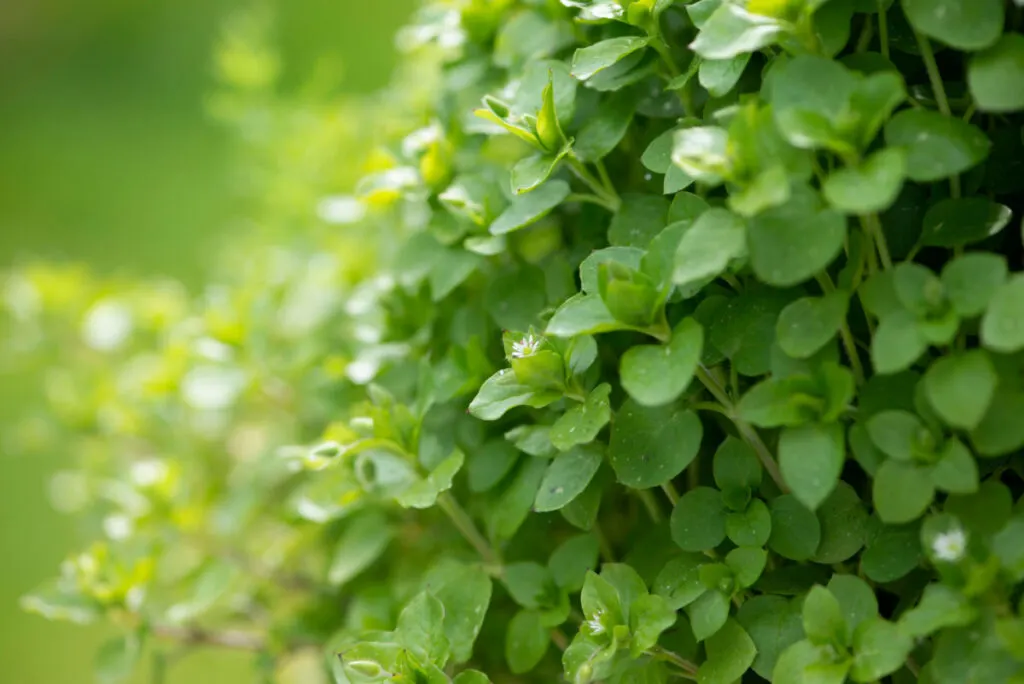
Chickweed grass first originated in Europe and is today found across the world. Chickweed grass gets its name from its popularity among chickens. Chickens adore this type of grass. Today, chickweed is used for a variety of natural medicines and is said to aid with pain and certain body ailments.
Guinea pigs may enjoy chickweed as it tastes fresh, grassy, and savory. This grass is a perfect addition to your little pal’s diet. Not to mention the health benefits including reducing inflammation, getting rid of germs, and aiding in overall health when your guinea pig is sick.
Goose Grass
Goose grass first originated in Eurasia. This grass was originally used for spices and even some medicines. Today, goose grass is commonly found in heavily compacted and abandoned areas. Goose grass thrives around deep marshlands, riversides, and beaches.
Guinea pigs may enjoy the bold and rich flavors of goose grass along with its variety of health benefits. Some of these benefits include aiding in urinary health, digestive health, and even containing an abundance of antioxidants!
Plantain grass
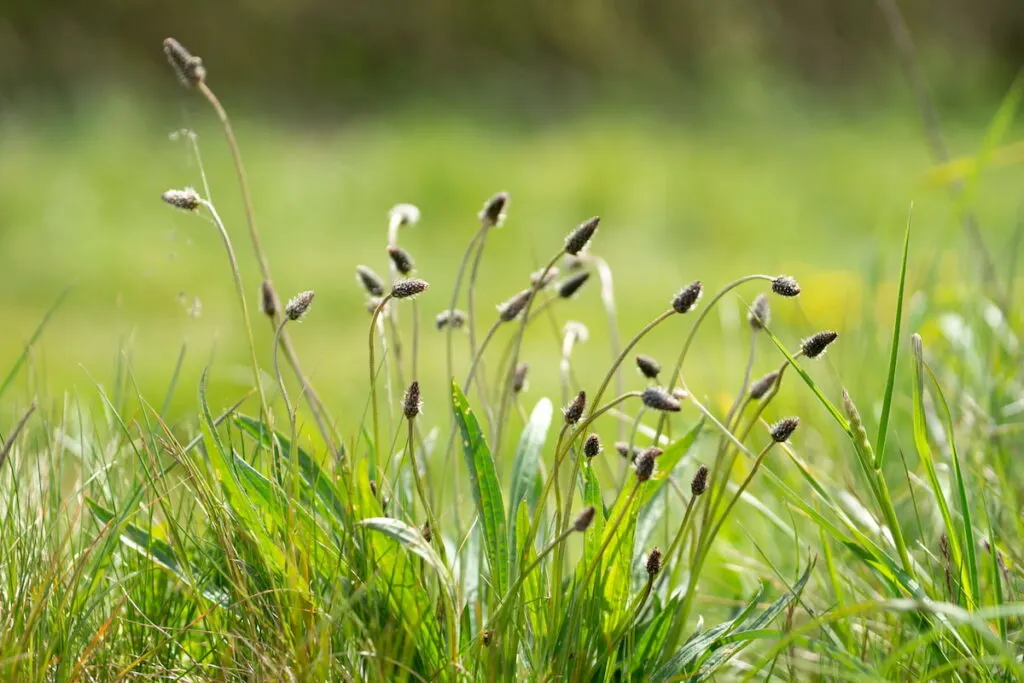
Plantain grass first originated in Europe. Today, plantain grass is found across the world among lawns, plantations, and agricultural regions. Plantain grass was originally used as a medicinal herb and as a popular cooking ingredient.
Guinea pigs may enjoy plantain grass for its nutty and rich flavor. This grass may be added to your guinea pigs’ diet and may even provide them with a variety of health benefits. Some of these health benefits include aiding in digestive issues, as well as containing an abundance of antioxidants.
Safety Information and Key Tips to Feeding Grass to Your Guinea Pig
Although guinea pigs are relatively tame and easy to take care of, it is important to take care of them properly to ensure optimal health and happiness for your furry friend. What you feed your guinea pig affects their health and happiness.
Below are some key tips to help ensure your guinea pig eats their desired grass safely.
- When letting your guinea pig explore grassy areas, allow them to explore for up to 10 minutes. After 10 minutes, assess if they are visibly displaying allergies including trouble breathing and swelling.
- Guinea pigs do not produce their own calcium, this means they need it from a supplement. Grass contains high levels of calcium and is one of the big reasons they are a popular food choice for guinea pigs.
- Hay is a more sustainable snack for your guinea pig than grass, hay is a cut and dried grass for consumption purposes for small animals. Grass may not have all the health benefits of hay in its natural form.
- Guinea pigs should start off with small amounts of grass/hay for the first time, this will commonly be done by giving them a small handful of the plant to see how they react to it. By doing this you can see if your guinea pig has a negative reaction to the grass and also see if they enjoy it or not in terms of flavor and texture.
- When feeding fresh grass to your guinea pig, be sure it is thoroughly washed and clean to prevent the consumption of bugs, and pesticides.
Special Note
The information listed in this article is not a suitable replacement for medical advice. If you believe your guinea pig is acting odd or displaying abnormal symptoms, it is important to call your veterinarian right away. This ensures that your furry friend is in peak health.
Sources
- https://squeaksandnibbles.com/can-guinea-pigs-eat-fresh-grass/
- https://smallpetselect.com/safe-forages-for-small-animals/
- https://en.wikipedia.org/wiki/Oat
- https://www.capegazette.com/article/prehistoric-times-oat-grass-has-been-major-source-food-animals-and-humans/199531
- https://www.medicalnewstoday.com/articles/324083
- https://www.fakefoodfree.com/taste-of-bluegrass/
- https://aggie-horticulture.tamu.edu/plantanswers/turf/publications/centipede.html
- https://www.therebels.com/resources/about-tall-fescue
- http://ipm.ucanr.edu/PMG/WEEDS/goosegrass.html
- https://icdsc.org/rabbit-eat-timothy-hay/
- http://khkeeler.blogspot.com/2013/09/plant-story-amazing-buffalograss.html
- https://www.thespruce.com/controlling-chickweed-2153157
- https://www.livescience.com/15322-healthiest-backyard-weeds.html
- http://www.differencebetween.net/science/nature/difference-between-hay-and-grass/
